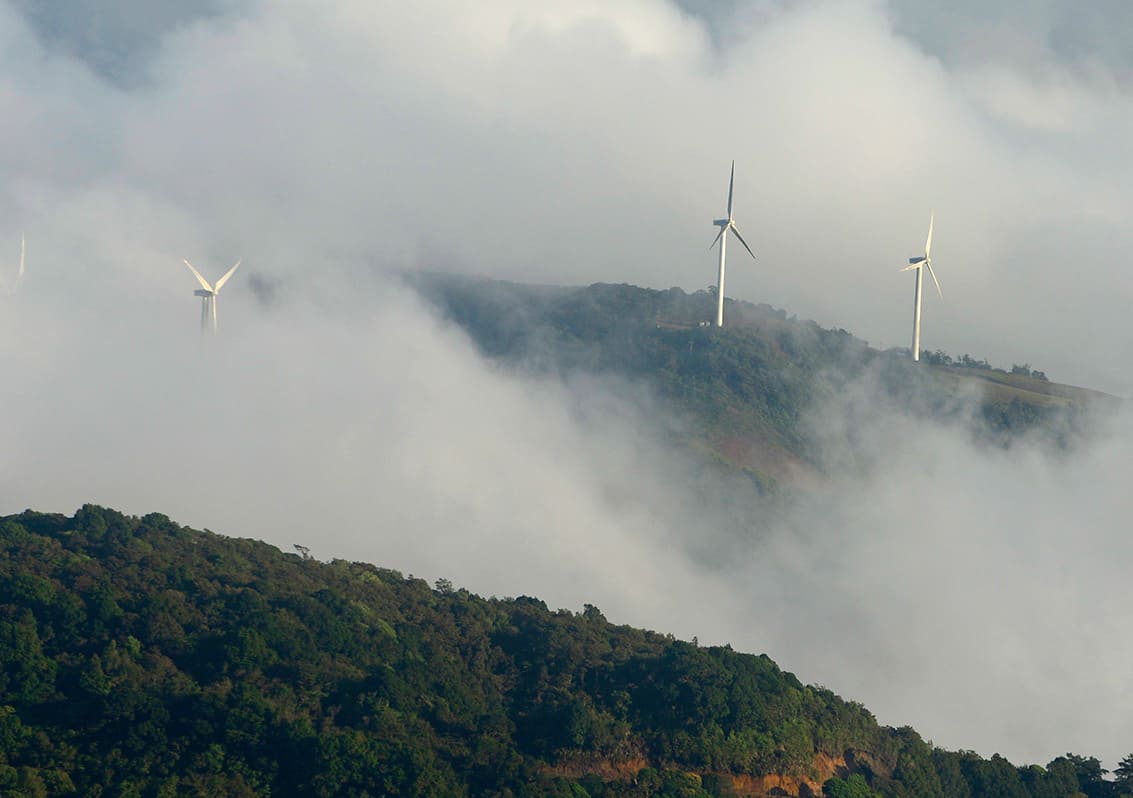Taking center stage at the U.N. Climate Summit on Tuesday, President Luis Guillermo Solís reaffirmed Costa Rica’s goal to become the world’s first carbon-neutral country by 2021. But while environmentalists applauded the president’s bold stance on changes in the transport and energy generation sectors, some groups doubt that a carbon-neutrality goal will truly make the country more sustainable.
“Right now carbon neutrality is more of a political goal than an environmental one,” Mariana Porras, a coordinator with the Ceiba Association of Ecological Communities – Friends of the Earth Costa Rica, told The Tico Times. “It is letting the country appear green without actually addressing any of the issues that cause emissions.”
Porras mentioned Costa Rica’s reliance on carbon credit initiatives like the U.N.’s Reducing Emissions from Deforestation and Forest Degradation Program (REDD) and other payment for environmental service programs, which pay land owners to maintain forest. With many of these programs, polluters can purchase carbon credits, which theoretically offset their carbon production by helping to pay for forest maintenance elsewhere.
The idea with payment for environmental services is to assign monetary value to forests, and give companies, individuals or governments an economic incentive to maintain forests and let the market do the rest.
Costa Rica has invested heavily in the payment for environmental services concept with REDD and a robust forest credit program, FONAFIFO. The programs have helped Costa Rica drastically reduce its deforestation rate. Between 1987 and 2012 Costa Rica went from 21 percent forest coverage to 52 percent, in what is widely recognized as one of the most successful reforestation projects in the world. Last year, Costa Rica made another leap into carbon credits by opening the world’s first carbon credit exchange, BANCO2.
But despite helping pave the way in reforestation, payment for environmental services does little to encourage polluters to stop polluting.
“Companies can just buy credits, get a stamp that they are carbon-neutral and keep on going with business as usual,” Porras said. “These programs don’t restructure the things that cause carbon emissions in the first place.”
In Costa Rica, the biggest problem is the transport sector, which generates approximately 70 percent of the country’s carbon emissions. But though the transport problem is widely acknowledged, little has been done to resolve it. According to Leiner Vargas, the head researcher for the government’s carbon-neutrality plan, at least 20-25 percent of Costa Rica’s buses and taxis need to switch to renewable energy sources for Costa Rica to become truly carbon-neutral.
“Have you been in an electric taxi recently? Because I certaintly haven’t,” Vargas told The Tico Times last year. “There has been no political will to get this done. There are no real incentives for anyone in public transportation to switch to a more efficient vehicle.”
In his address to the U.N., Solís vowed his administration would push for a biofuel bus system and an electric railway, and claimed that by 2016, the country’s electric matrix would be 100 percent renewable. But it remains to be seen if Solís’ claims are viable. He gave no indications of a plan to finance the new transport system in a county that can barely pay to maintain its roads, and he ignored evidence that the country’s hydroelectric dams — which used to provide nearly all of the country’s power — are growing less productive as rain patterns change.
“We are just hoping that he actually does what he says he is going to,” Alejandra Granados, with the environmental policy group Costa Rica Limpia, told The Tico Times. “We need transformative actions, not empty promises.”






